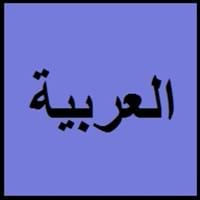Arabic vs Irish
- Arabic is 5th common language in world.
- Classical Arabic is the language of Quran and also it is official language. Classical Arabic is the only way to learn Arabic language in academic way and it does not change.
- In Irish language, there are no exact words for "yes" or "no".
- There are different set of numbers for counting humans and another set for counting non-humans in Irish Language.
Arabic and Irish Language History
Comparison of Arabic vs Irish language history gives us differences between origin of Arabic and Irish language. History of Arabic language states that this language originated in 512 CE whereas history of Irish language states that this language originated in c. 750. Family of the language also forms a part of history of that language. More on language families of these languages can be found out on Arabic and Irish Language History.
Arabic and Irish Greetings
People around the world use different languages to interact with each other. Even if we cannot communicate fluently in any language, it will always be beneficial to know about some of the common greetings or phrases from that language. This is where Arabic and Irish greetings helps you to understand basic phrases in Arabic and Irish language. Arabic word for "Hello" is مرحبا or Irish word for "Thank You" is Go raibh maith agat. Find more of such common Arabic Greetings and Irish Greetings. These greetings will help you to be more confident when conversing with natives that speak these languages.
Arabic vs Irish Difficulty
The Arabic vs Irish difficulty level basically depends on the number of Arabic Alphabets and Irish Alphabets. Also the number of vowels and consonants in the language plays an important role in deciding the difficulty level of that language. The important points to be considered when we compare Arabic and Irish are the origin, speaking countries, language family, different greetings, speaking population of these languages. Want to know in Arabic and Irish, which language is harder to learn? Time required to learn Arabic is 88 weeks while to learn Irish time required is 36 weeks.





